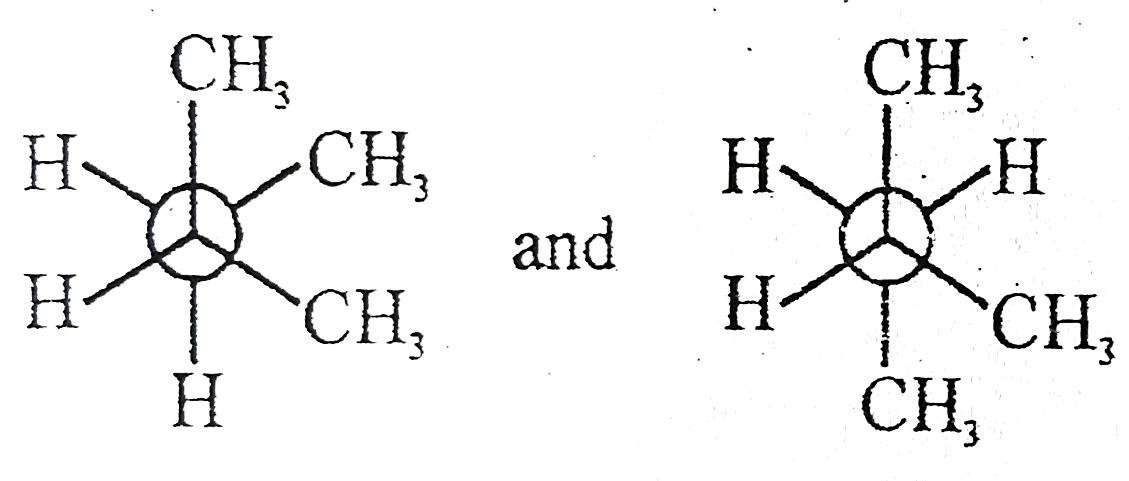Assertion: KHCO3 can not be obtained by solvay process.
Reason: KHCO3 is less soluble than NaHCO3
If both Assertion & Reason are True & the Reason is a correct explanation of the Assertion
If both Assertion & Reason are True but Reason is not a correct explanation of the Assertion
If Assertion is True but the Reason is False
If both Assertion & Reason are False
The correct Answer is:C
To solve the question, we need to analyze the assertion and the reason given:
Assertion: KHCO3 cannot be obtained by the Solvay process.
Reason: KHCO3 is less soluble than NaHCO3.
1. Understanding the Solvay Process:
- The Solvay process is primarily used to produce sodium bicarbonate (NaHCO3) from sodium chloride (NaCl), ammonia (NH3), carbon dioxide (CO2), and water (H2O).
- The process involves the reaction of sodium chloride with ammonia and carbon dioxide to form sodium bicarbonate, which is then precipitated out.
2. Analyzing the Assertion:
- The assertion states that KHCO3 cannot be obtained by the Solvay process.
- The Solvay process is specifically designed for sodium compounds, and while it can produce sodium bicarbonate, it does not produce potassium bicarbonate (KHCO3).
- Therefore, the assertion is correct.
3. Analyzing the Reason:
- The reason states that KHCO3 is less soluble than NaHCO3.
- To compare the solubility, we need to consider the ionic sizes of potassium (K+) and sodium (Na+).
- Potassium ions are larger than sodium ions. According to Fajans' rules, larger cations tend to have a lower charge density, which can lead to increased covalent character in their compounds.
- However, KHCO3 is actually more soluble than NaHCO3 in water due to the ionic nature of potassium compounds.
- Therefore, the reason is incorrect.
4. Conclusion:
- The assertion is true, and the reason is false.
- Thus, the correct answer is that the assertion is correct, but the reason is incorrect.
Final Answer:
- Assertion is true, Reason is false.
- The Solvay process is primarily used to produce sodium bicarbonate (NaHCO3) from sodium chloride (NaCl), ammonia (NH3), carbon dioxide (CO2), and water (H2O).
- The process involves the reaction of sodium chloride with ammonia and carbon dioxide to form sodium bicarbonate, which is then precipitated out.
- The assertion states that KHCO3 cannot be obtained by the Solvay process.
- The Solvay process is specifically designed for sodium compounds, and while it can produce sodium bicarbonate, it does not produce potassium bicarbonate (KHCO3).
- Therefore, the assertion is correct.
- The reason states that KHCO3 is less soluble than NaHCO3.
- To compare the solubility, we need to consider the ionic sizes of potassium (K+) and sodium (Na+).
- Potassium ions are larger than sodium ions. According to Fajans' rules, larger cations tend to have a lower charge density, which can lead to increased covalent character in their compounds.
- However, KHCO3 is actually more soluble than NaHCO3 in water due to the ionic nature of potassium compounds.
- Therefore, the reason is incorrect.
- The assertion is true, and the reason is false.
- Thus, the correct answer is that the assertion is correct, but the reason is incorrect.
- Assertion is true, Reason is false.
Topper's Solved these Questions
- S-BLOCK ELEMENTS BOOK - ALLENCHAPTER - S-BLOCK ELEMENTS EXERCISE - EXERCISE -1 (B)
1 Video
- S-BLOCK ELEMENTS BOOK - ALLENCHAPTER - S-BLOCK ELEMENTS EXERCISE - EXERCISE -2
1 Video
- S-BLOCK ELEMENTS BOOK - ALLENCHAPTER - S-BLOCK ELEMENTS EXERCISE - EXERCISE -3
1 Video
- s-Block element BOOK - ALLENCHAPTER - s-Block element EXERCISE - All Questions
14 Videos
- SOLUTIONSBOOK - ALLENCHAPTER - SOLUTIONSEXERCISE - EXERCISE -05 [B]
22 Videos
Similar Questions
k2CO3 cannot be prepared by solvay process because
View Solutionk2CO3 cannot be prepared by solvay process because
View SolutionPotassium carbonate can be obtained by Solvay's process.
View SolutionNaHCO3 can be used to-
View SolutionPH3 is less basic than NH3.
View SolutionAssertion: BF3 is weaker lewisi acid than BCl3.
Reason: BF3 is less electron deficient thann BCl3.
View SolutionAssertion: Ti3+ salts are coloured whereas Ti4+ salts are white. Reason: Ti3+ is less stable than Ti4+
View SolutionAssertion

are conformers.
Reason:- First is less stable than second.
View SolutionAssertion : O3 has higher boiling point than O2.
Reason : O3 is allotrope of oxygen.
View SolutionAssertion (A): NaOH is a stronger base than KOH.
Reason (R ): KOH is more soluble in water than NaOH.
View Solution